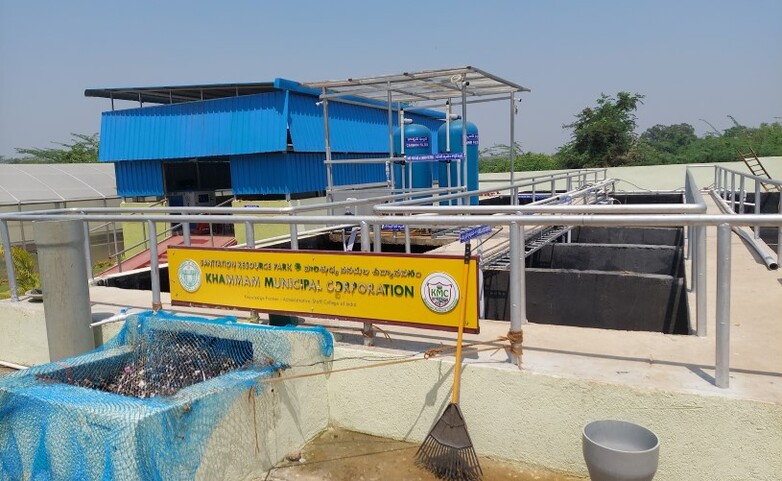Improving faecal sludge management along the value chain
Sustainable Urban Sanitation
-
Commissioning Party
German Federal Ministry for Economic Cooperation and Development (BMZ)
-
Country
-
Lead executing agency
More
-
Overall term
2021 to 2024
-
Other Stakeholders
Transerve Technologies Private Limited
-
Products and expertise
Sustainable Infrastructure: water, energy, transport
Context
India is urbanising at a rapid pace, but existing sanitation systems are not sufficient to meet the increasing demand. According to recent estimates by the World Economic Forum (2019), urban areas generate around 0.12 million tonnes of faecal sludge in India every day. As around two-thirds of urban household toilets are not connected to a sewage system, the untreated faecal sludge contaminates drinking water or food, leading to significant health problems.
The national policy on Faecal Sludge and Septage Management (FSSM) promotes faecal sludge management systems specifically for non-sewered cities across the country. FSSM encompasses all processes involved in the sanitation value chain, such as on-site containment, as well as septage transport, treatment, reuse and disposal.
The Indian state of Telangana is a forerunner in setting up faecal sludge treatment plants (FSTPs) on a design, build, operate and transfer basis in 72 urban local bodies (ULBs). However, it needs technical support to build up the skills and awareness of stakeholders across the sanitation value chain.

Objective
The safe disposal of faecal sludge has been improved in two pilot cities in India.
Approach
The project works with two ULBs in the Indian state of Telangana and showcases the benefits of integrated geographic information systems (GIS) and digital solutions for FSSM. The realised benefits will drive upscaling of the initiative and its adoption by other ULBs.
Key areas of intervention:
- Integrating a GIS and other digital solutions into the FSM value chain, including the creation of a comprehensive data repository and a digital platform in the local language.
- Building the awareness, skills and technical knowledge of ULB representatives, utility engineers, desludging truck operators and households on the correct FSM procedures, their roles and the benefits of adopting smart solutions.
- Onboarding and buying in relevant actors by creating awareness of potential business opportunities in the FSM sector.
Last update: August 2023






